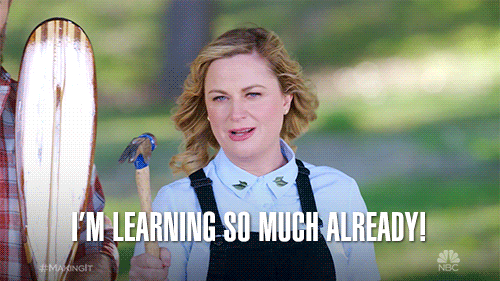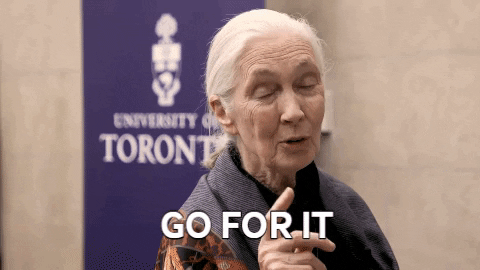The experience is all too common: You see an exciting workshop title, decide to attend, and then, you’re let down by an uninspired PowerPoint and lecture.
Many presenters default to the traditional slides + lecture formula, but there are other ways to structure a workshop. One way to up the engagement factor is by centering your workshop around a big question.
The power of questions
We are all familiar with asking and answering questions. But how can that be done in a purposeful manner? Questions are powerful tools for reaching many goals, including building relationships, gathering more information, and inspiring learning.
What is a big question?
While they can take many forms, big questions are always open-ended, challenging, and trigger critical thinking.
The question you base your workshop on should be challenging but also answerable. Participants will likely feel defeated if you start your workshop with an unanswerable question. So, ask something that draws upon the participants’ current knowledge sets and experiences. They might not be able to answer the question fully but that’s okay; they’ll learn more through later parts of the workshop.

A side effect of a challenging question is critical thinking. If participants have to pause a moment to think of an answer, it’s a good indication that they are thinking critically.
While easy-to-answer, surface-level questions have their place, they are not as effective in fostering engagement during a workshop. For example, if you are leading a workshop for first-semester students about becoming involved on campus, instead of asking, “Does involvement in student organizations help with building leadership skills?,” consider asking, “How will joining a student organization benefit you?”
The first question can be answered with “yes” or “no” and doesn’t prompt much thinking beyond that. The second question is open-ended and much broader. It’s also challenging and encourages students to consider all the possible benefits while drawing upon their experiences.
Here are three examples of question-centered workshops for students:
Orientation Presentations
Orientation can be overwhelming, as students hear a lot of important information in a short amount of time. So, in a session on transitions, consider pitching the question, “How will college be different than high school?”
This question is big, open-ended, and encourages students to think critically. Allow students to discuss their answers in small groups, ideally facilitated by a staff member or student leader. Provide a whiteboard or paper for participants to jot ideas down.
After the small-group chats, bring the full group back together and ask volunteers to share the answers they discussed. These responses can serve as jumping-off points for more in-depth conversations and information that you’ll supply in your workshop.
Wrapping up the session with a few top takeaways will give the students something to remember. Plus, having interacted with their peers, they will end the session feeling more connected with one another.
Virtual Leadership Training
If your institution has shifted to online learning due to the COVID-19 outbreak, consider bringing student organization leaders together for a virtual workshop via video conference. Create a teachable moment by starting with the question, “What makes a leader effective in a time of disruption?”
After posing the question, give students a moment to think and, optionally, write down their answers — which you’ll later ask them to share with the larger group. To extend the conversation, consider also asking, “What makes a leader ineffective in a time of disruption?”

Students will be able to use their observations of federal and local pandemic responses to answer both questions.
You can then use the remainder of the workshop to teach students skills that will help them make difficult leadership decisions in the future.
Mandatory Academic Integrity Workshop
Academic integrity is a concept that all college students should be educated on early in their academic careers. But, unfortunately, mandatory academic integrity presentations can easily be dry and, therefore, easily forgotten by students. To help solve this, consider starting an academic integrity workshop by asking, “Why does integrity matter?”
This question primes students to see the value in academic integrity, even before they learn the specifics of it.
(Extra tip: Case studies, in conjunction with policy, can be a great way to illustrate the ins and outs of academic integrity.)
Why do questions work so well?
Using big questions to facilitate learning is one way to shift your workshop from being teacher-centered to being learner-centered. Though this concept was developed to retool classroom learning, these high-impact practices can easily be applied to co-curricular workshops.
Instead of the workshop facilitator providing participants with answers and information outright, asking a big question allows participants to think critically about the topic using their current knowledge. Then, the facilitator is able to draw upon the participants’ responses and push deeper into the topic by providing information to fill any gaps.
And you don’t have to save this goldmine just for students; if you are leading a professional development workshop for your staff or partners across campus, bring out the big questions!

What big questions have you used to make your workshops more engaging? Share your ideas with us on Twitter at @themoderncampus.





